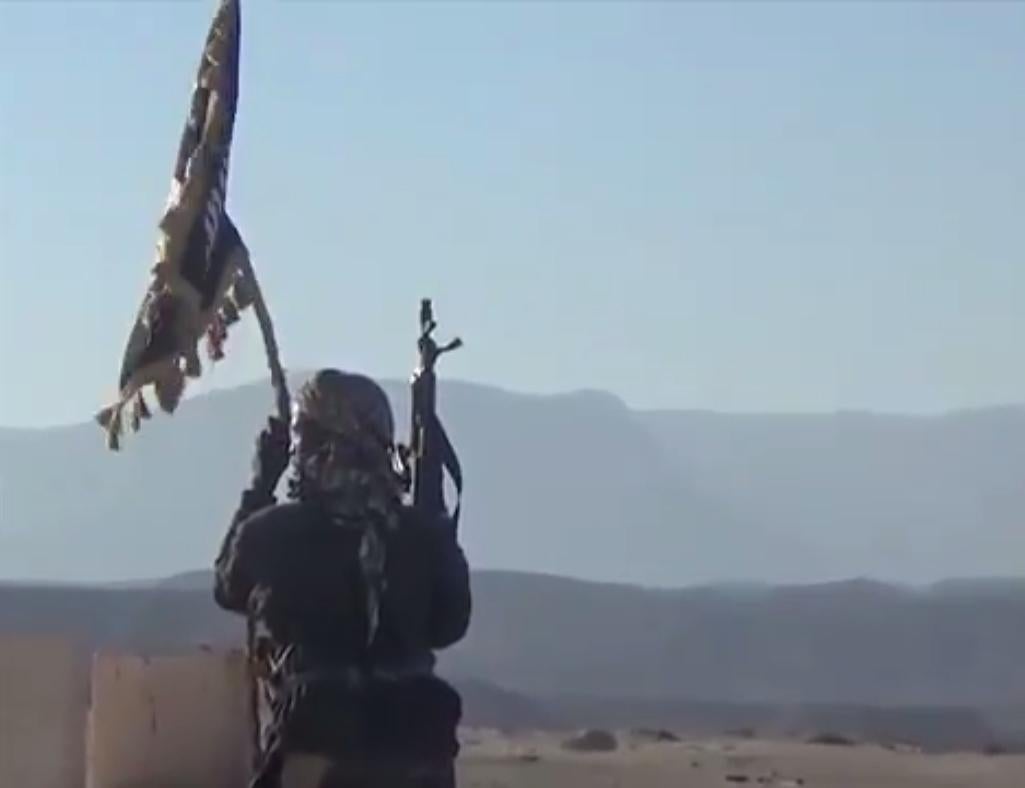New branch of Isis seizes its first Somali town as jihadists show signal of intent
Brief occupation of port city is an indication of Isis's growing boldness in Horn of Africa, much to the annoyance of the established insurgency of al-Shabaab

Your support helps us to tell the story
From reproductive rights to climate change to Big Tech, The Independent is on the ground when the story is developing. Whether it's investigating the financials of Elon Musk's pro-Trump PAC or producing our latest documentary, 'The A Word', which shines a light on the American women fighting for reproductive rights, we know how important it is to parse out the facts from the messaging.
At such a critical moment in US history, we need reporters on the ground. Your donation allows us to keep sending journalists to speak to both sides of the story.
The Independent is trusted by Americans across the entire political spectrum. And unlike many other quality news outlets, we choose not to lock Americans out of our reporting and analysis with paywalls. We believe quality journalism should be available to everyone, paid for by those who can afford it.
Your support makes all the difference.A group of fighters loyal to the Isis militant group has briefly occupied a small Somali port town, their first significant act in the region since breaking away from al-Shabaab a year ago.
Identifying themselves as simply the Islamic State, up to 50 jihadists entered the town of Qandala on the coast of Puntland, a small semi-autonomous state in the horn of Africa.
Video released by Isis’s central Amaq Agency showed about a dozen of the fighters entering the seemingly abandoned town, entering government buildings and raising a black-and-white Isis flag.
The occupation was short-lived. On Thursday, less than 24 hours after they arrived, the fighters withdrew from the city back to the surrounding mountains.
Government officials and locals said the threat of a response force of Puntland soldiers, coupled with the arrival of military aircraft, prompted the militants to withdraw.
But with no African peacekeepers present in Puntland and already the threat of al-Shabaab to deal with, the growing boldness of the Isis-affiliated splinter group will be a concern.
When the few Puntland soldiers in the town fled on Wednesday, many residents went with them, and Isis were quickly able to cut of communications to the city, district commissioner Jamac Mohamed Khuurshe said. “Our soldiers were few and so could not fight longer,” he added.
And while the occupation did not last long, Puntland police officer Major Saiid Ali said the group had never before seized a town of such a size, having previously only entered two small villages.
Before Qandala's phone lines were cut off, fisherman Abdirahman Hussein told Reuters: "We just saw Daesh (Islamic State) with their black banner as we were fishing. They said to us: 'Don't panic, we will rule you according to the Islamic sharia (law)'."
Cabdirisak Mohamed, a security official in the capital Bossaso, dismissed the takeover of Qandala as "a desperate attempt to draw attention”.
He told the AFP news agency Puntland deployed hundreds of soldiers to the town and it was only “unfortunate” Isis retreated before they could arrive.
Last year, the group led by former al-Shabaab cleric Abdiqadir Mumin switched allegiance from al-Qaeda to Isis, but they have been little heard-from since.
Nonetheless, Mumin has been identified as a “global terrorist” by the US State Department, making him a potential target for drone strikes.
Al-Shabaab, Somalia’s jihadist insurgency which has at times controlled vast swathes of the country, is aware defections to Isis could undermine its strength in the Horn of Africa, and is trying to prevent the Middle Eastern group from establishing a foothold in the country.
Join our commenting forum
Join thought-provoking conversations, follow other Independent readers and see their replies
Comments